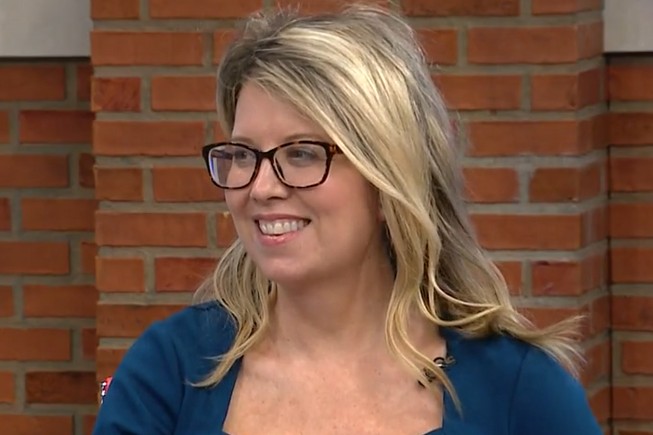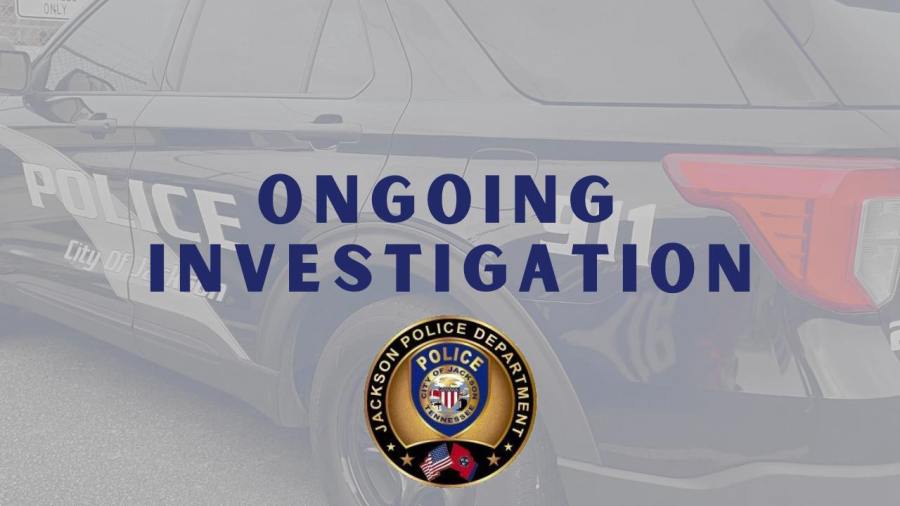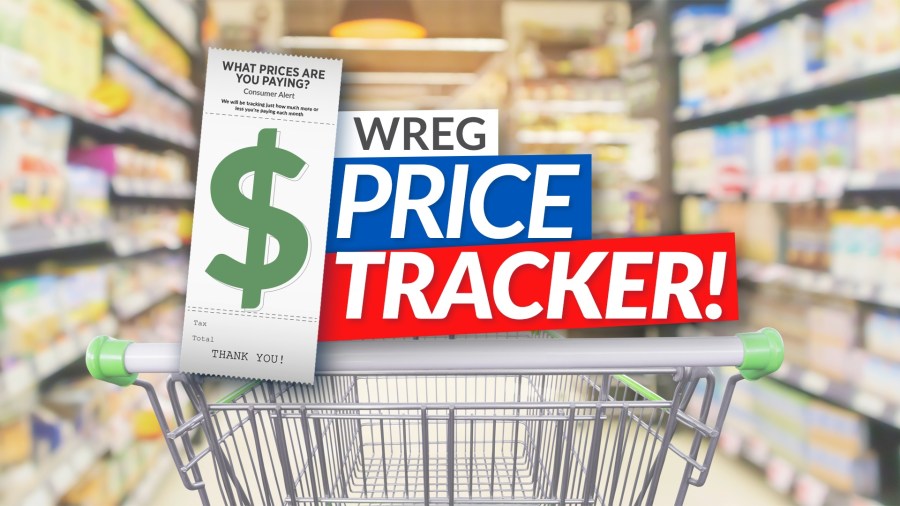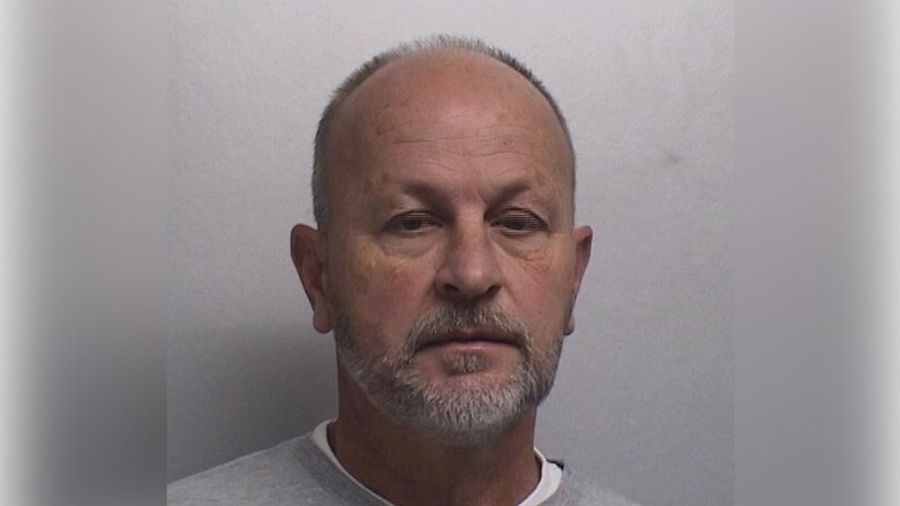WEST POINT, Miss. (AP) — Authorities have charged a 24-year-old man with murder after six people were killed in a series of related shootings Friday night in northeast Mississippi. Clay County Chief Sheriff’s Deputy Steven Woodruff confirms Daricka M. Moore has been charged in the killings. He was booked into the Clay County jail before […]
Berita Terkini
Berita Terbaru
Daftar Terbaru
News
Berita Terbaru
Flash News
RuangJP
Pemilu
Berita Terkini
Prediksi Bola
Technology
Otomotif
Berita Terbaru
Teknologi
Berita terkini
Berita Pemilu
Berita Teknologi
Hiburan
master Slote
Berita Terkini
Pendidikan
Resep
Jasa Backlink
Togel Deposit Pulsa
Daftar Judi Slot Online Terpercaya
Slot yang lagi gacor
All posts by j3oph451b6
MS governor confirms he will make major announcement in Southaven

SOUTHAVEN, Miss. — Mississippi Gov. Tate Reeves said he will announce the “largest single investment in Mississippi history” at 1 p.m. Thursday in Southaven. Reeves did not specify what company or property is involved in that announcement, but Elon Musk’s company xAI recently bought a warehouse in Southaven, just south of its Colossus 2 facility […]
Berita Terkini
Berita Terbaru
Daftar Terbaru
News
Berita Terbaru
Flash News
RuangJP
Pemilu
Berita Terkini
Prediksi Bola
Technology
Otomotif
Berita Terbaru
Teknologi
Berita terkini
Berita Pemilu
Berita Teknologi
Hiburan
master Slote
Berita Terkini
Pendidikan
Resep
Jasa Backlink
Togel Deposit Pulsa
Daftar Judi Slot Online Terpercaya
Slot yang lagi gacor
Mayor Lee Harris appoints City Council member Jerri Green as Chief Public Defender

MEMPHIS, Tenn. — The office of Shelby County Mayor Lee Harris announced that Jerri Green has been appointed as the Interim Shelby County Chief Public Defender, a press release said Tuesday morning. Green, who currently serves as the Deputy Chief of Staff for the Office of the Mayor, will officially transition into the role on […]
Berita Terkini
Berita Terbaru
Daftar Terbaru
News
Berita Terbaru
Flash News
RuangJP
Pemilu
Berita Terkini
Prediksi Bola
Technology
Otomotif
Berita Terbaru
Teknologi
Berita terkini
Berita Pemilu
Berita Teknologi
Hiburan
master Slote
Berita Terkini
Pendidikan
Resep
Jasa Backlink
Togel Deposit Pulsa
Daftar Judi Slot Online Terpercaya
Slot yang lagi gacor
Whiteville resident killed in shooting, police say

MEMPHIS, Tenn. — The Jackson Police Department is investigating a shooting that killed a 31-year-old man early Sunday morning. At around 3:30 a.m., officers responded to a report of shots fired in the parking lot of King Baba’s Restaurant, 76 Old Hickory Blvd. East. When they arrived, officers determined that several shots had been fired […]
Berita Terkini
Berita Terbaru
Daftar Terbaru
News
Berita Terbaru
Flash News
RuangJP
Pemilu
Berita Terkini
Prediksi Bola
Technology
Otomotif
Berita Terbaru
Teknologi
Berita terkini
Berita Pemilu
Berita Teknologi
Hiburan
master Slote
Berita Terkini
Pendidikan
Resep
Jasa Backlink
Togel Deposit Pulsa
Daftar Judi Slot Online Terpercaya
Slot yang lagi gacor
Ex-Memphis Police officer charged with stalking

MEMPHIS, Tenn. — A former Memphis Police officer who was the subject of news coverage after he was hit by a vehicle while on duty in 2023 has been charged with stalking a woman. Samuel Mills, 27, was arrested Wednesday and released Thursday on $1,000 bond, jail records show. According to police, Mills showed up […]
Berita Terkini
Berita Terbaru
Daftar Terbaru
News
Berita Terbaru
Flash News
RuangJP
Pemilu
Berita Terkini
Prediksi Bola
Technology
Otomotif
Berita Terbaru
Teknologi
Berita terkini
Berita Pemilu
Berita Teknologi
Hiburan
master Slote
Berita Terkini
Pendidikan
Resep
Jasa Backlink
Togel Deposit Pulsa
Daftar Judi Slot Online Terpercaya
Slot yang lagi gacor
New Year, New Savings: WREG Price Tracker finds discounts on gas, groceries, & post-holiday sales

We’re roughly a week past Christmas and about to start a new year which means money is likely on your mind! Whether it’s because of all that holiday spending or simply wanting to save more in 2026, we are here to help with the WREG Price Tracker and there is some good news for the […]
Berita Terkini
Berita Terbaru
Daftar Terbaru
News
Berita Terbaru
Flash News
RuangJP
Pemilu
Berita Terkini
Prediksi Bola
Technology
Otomotif
Berita Terbaru
Teknologi
Berita terkini
Berita Pemilu
Berita Teknologi
Hiburan
master Slote
Berita Terkini
Pendidikan
Resep
Jasa Backlink
Togel Deposit Pulsa
Daftar Judi Slot Online Terpercaya
Slot yang lagi gacor
Former director at senior-living facility charged with theft, battery

COLLIERVILLE, Tenn. — A former director at a senior-living facility in Collierville is accused of stealing from residents’ rooms, according to the Collierville Police Department (CPD). CPD said Timothy Johnson, 57, of Jonesboro, Arkansas, turned himself in on December 18. Johnson was charged with theft of property over $10,000 and aggravated battery. During an investigation, […]
Berita Terkini
Berita Terbaru
Daftar Terbaru
News
Berita Terbaru
Flash News
RuangJP
Pemilu
Berita Terkini
Prediksi Bola
Technology
Otomotif
Berita Terbaru
Teknologi
Berita terkini
Berita Pemilu
Berita Teknologi
Hiburan
master Slote
Berita Terkini
Pendidikan
Resep
Jasa Backlink
Togel Deposit Pulsa
Daftar Judi Slot Online Terpercaya
Slot yang lagi gacor
Memphis Zoo welcomes baby orangutan

MEMPHIS, Tenn. — The Memphis Zoo announced the birth of a baby orangutan, born to mom Jahe earlier in December, with the support of Memphis Zoo’s Animal Care and Veterinary teams. Orangutans are Critically Endangered, making each birth in accredited zoological care an important contribution to the sustainability of managed populations, as well as ongoing […]
Berita Terkini
Berita Terbaru
Daftar Terbaru
News
Berita Terbaru
Flash News
RuangJP
Pemilu
Berita Terkini
Prediksi Bola
Technology
Otomotif
Berita Terbaru
Teknologi
Berita terkini
Berita Pemilu
Berita Teknologi
Hiburan
master Slote
Berita Terkini
Pendidikan
Resep
Jasa Backlink
Togel Deposit Pulsa
Daftar Judi Slot Online Terpercaya
Slot yang lagi gacor
Holiday Travel Arrests: How Being Charged Away From Home Can Complicate Your Case
Holiday travel is supposed to be a break from routine, a chance to unwind, see family, or enjoy a change of scenery. But when an arrest happens away from home, the legal consequences can feel overwhelming very quickly. What might have been a manageable situation locally can become far more complex when you’re dealing with unfamiliar courts, travel restrictions, and legal obligations hundreds or thousands of miles away.
Understanding how an out-of-town arrest works and why it requires immediate attention can help you avoid long-term consequences that follow you well beyond the holidays.
Why Arrests Increase During Holiday Travel
During major holidays, law enforcement agencies across Florida increase patrols, DUI enforcement, and traffic stops. Airports, hotels, entertainment districts, and highways see heightened police presence. Add alcohol, late nights, rental vehicles, and unfamiliar surroundings, and even minor incidents can escalate faster than expected.
What surprises many travelers is how quickly a routine stop or misunderstanding can turn into a criminal charge, especially when officers are operating under heightened enforcement directives.
What Changes When You’re Arrested Away From Home
When you’re arrested outside your home county or outside your home state, the case stays where the arrest occurred. That means the local court has jurisdiction, regardless of where you live. All hearings, deadlines, and filings are handled there.
This creates immediate challenges. You may be required to return for court dates, even if doing so means missing work, paying for flights, or arranging childcare. If you fail to appear, the court can issue a bench warrant, turning a single charge into a much more serious legal problem.
For out-of-state visitors, the situation can feel even more intimidating. Florida courts do not dismiss cases simply because a defendant lives elsewhere. In fact, judges may impose stricter bond conditions or require proof of compliance precisely because the defendant is not local.
Bond, Release, and Travel Restrictions
Being arrested away from home can also affect bond decisions. Judges may impose higher bond amounts or restrict travel until the case progresses. Some defendants are released quickly but later learn they must return multiple times for hearings.
A defense attorney can often step in early to request reasonable bond terms, argue for limited or waived travel requirements when appropriate, and communicate with the court to reduce unnecessary disruption to your life.
Real Example: Tourists Arrested After a Traffic Stop in Florida
In July 2025, two brothers visiting Florida were pulled over by the Florida Highway Patrol while on vacation in Central Florida because their vehicle had tinted windows and Mexican license plates. During the stop, officers determined the vehicle lacked valid U.S. registration in either Florida or Mexico, and one brother was arrested and taken to a local jail. Their father later spoke publicly about the family’s distress after the arrests, highlighting how a routine traffic stop while traveling can quickly lead to unexpected detention and legal trouble far from home.
This example clearly illustrates how simple travel-related infractions can escalate into an arrest when someone is away from home, and how being charged in a different jurisdiction adds complexity to resolving the matter.
Why Having a Local Attorney Matters
Trying to manage a criminal case remotely, especially during the holidays, is difficult and risky. A local criminal defense attorney can appear in court on your behalf when permitted, communicate directly with prosecutors, monitor deadlines, and ensure nothing falls through the cracks. In many cases, having counsel early can significantly reduce how often you need to return to the jurisdiction where the arrest occurred.
Just as importantly, an attorney can assess whether the stop, search, or arrest itself was lawful. Holiday enforcement does not excuse constitutional violations, and unlawful police conduct can still lead to suppressed evidence or dismissed charges.
What to Do If You’re Arrested While Traveling
If you’re arrested while away from home, it’s critical to take the situation seriously from the start. Avoid discussing the incident with law enforcement without legal counsel, comply with all bond conditions, and contact a criminal defense attorney as soon as possible. Waiting until you return home or assuming the issue will resolve itself can make the situation far worse.
An arrest away from home can turn a holiday trip into a lasting legal headache, but it doesn’t have to define your future. With prompt legal guidance, many out-of-town cases can be handled efficiently and strategically, minimizing disruption and protecting your rights.
If you or a loved one has been arrested while traveling in Florida, speaking with an experienced criminal defense attorney early can make a critical difference. Criminal defense lawyer Russell A. Spatz of the Spatz Law Firm, P.L., in Miami, Florida, has decades of experience handling serious criminal cases. Contact him at 305-442-0200 to discuss your case and ensure you have the protection and vigorous representation you need.The post Holiday Travel Arrests: How Being Charged Away From Home Can Complicate Your Case first appeared on Spatz Law Firm, PL.
law
Pendidikan
Pendidikan
Download Anime>
Berita Teknologi
Seputar Teknologi
situs slot online resmi terpercaya
📌 Contoh Situs Slot / Kasino Online yang Sering Direkomendasikan (Meski Offshore)
- BK8 Casino ID – Sering muncul di daftar situs judi online terpercaya 2025 dengan bonus dan pilihan game lengkap.
- We88 Casino ID – Dikenal menawarkan bonus sambutan dan slot populer untuk pemain dari Asia Tenggara.
- MD88 Casino ID – Direkomendasikan dalam daftar situs terbaik menurut panduan judi online.
- Parimatch / Longfu88 – Juga sering ada dalam list platform dengan reputasi internasional (walau bukan licensi lokal Indonesia).
- Klik555 – Situs yang sering disebut portal lengkap slot online dan kasino.
📌 Catatan: Nama‑nama ini bukan rekomendasi resmi dan risiko hukum serta keamanan tetap ada karena perjudian online itu dilarang di Indonesia.
🧠 Hal yang Harus Kamu Ketahui Sebelum Bergabung
✔️ Lisensi internasional vs lisensi Indonesia
Situs luar negeri mungkin berlisensi oleh otoritas seperti Curacao, PAGCOR, atau Malta — ini tidak membuatnya legal di dalam wilayah Indonesia.
✔️ Keamanan data & transaksi
Situs yang “aman” akan tunduk pada standar enkripsi SSL dan audit RNG, tapi ini tidak mengubah status ilegalnya di Indonesia.
✔️ Risiko serius
Karena perjudian online ilegal di Indonesia, menggunakan situs tersebut bisa mengundang masalah hukum, pemblokiran, atau risiko finansial.
📍 Rekomendasi Aman (Alternatif Legal & Tanpa Risiko Hukum)
✔️ Main slot versi gratis / demo di situs resmi penyedia game seperti Pragmatic Play, PG Soft, NetEnt — ini tanpa uang asli dan aman secara hukum karena hanya hiburan.
✔️ Game lokal / offline yang mirip slot untuk hiburan tanpa risiko hukum.
🔔 Kesimpulan:
Tidak ada situs slot online yang benar‑benar resmi dan legal di Indonesia karena perjudian online dilarang. Nama‑nama platform di atas hanyalah contoh situs offshore yang sering disebut pemain komunitas, tetapi tetap mengandung risiko hukum dan keamanan tinggi bagi pengguna di Indonesia. Agen234